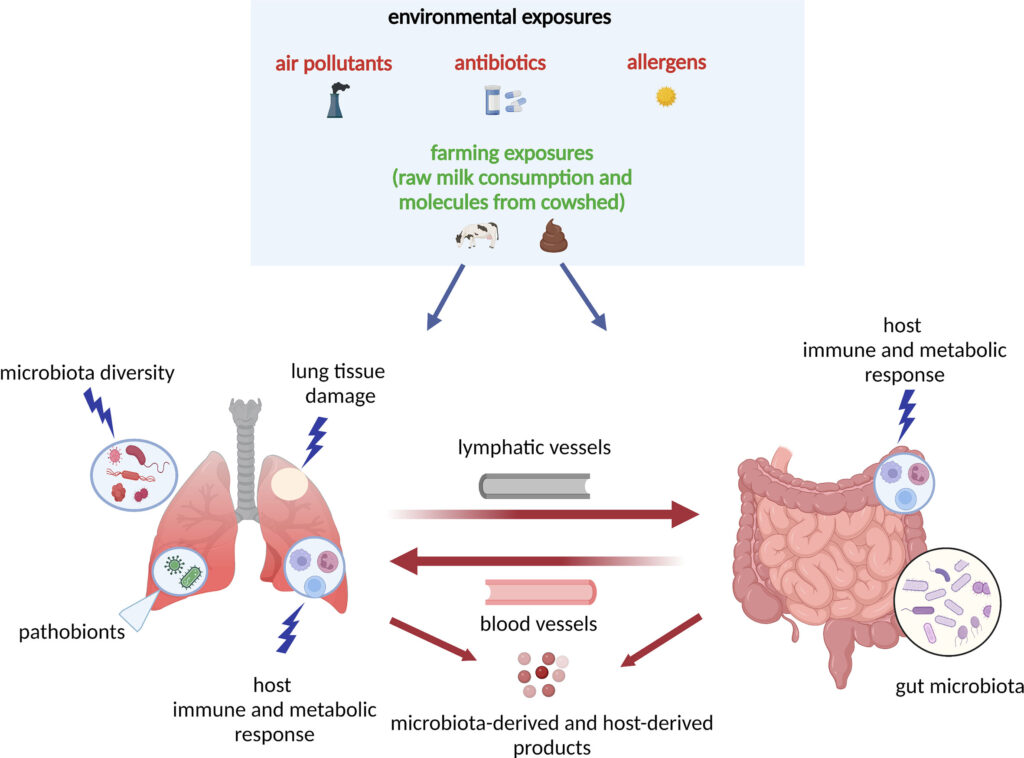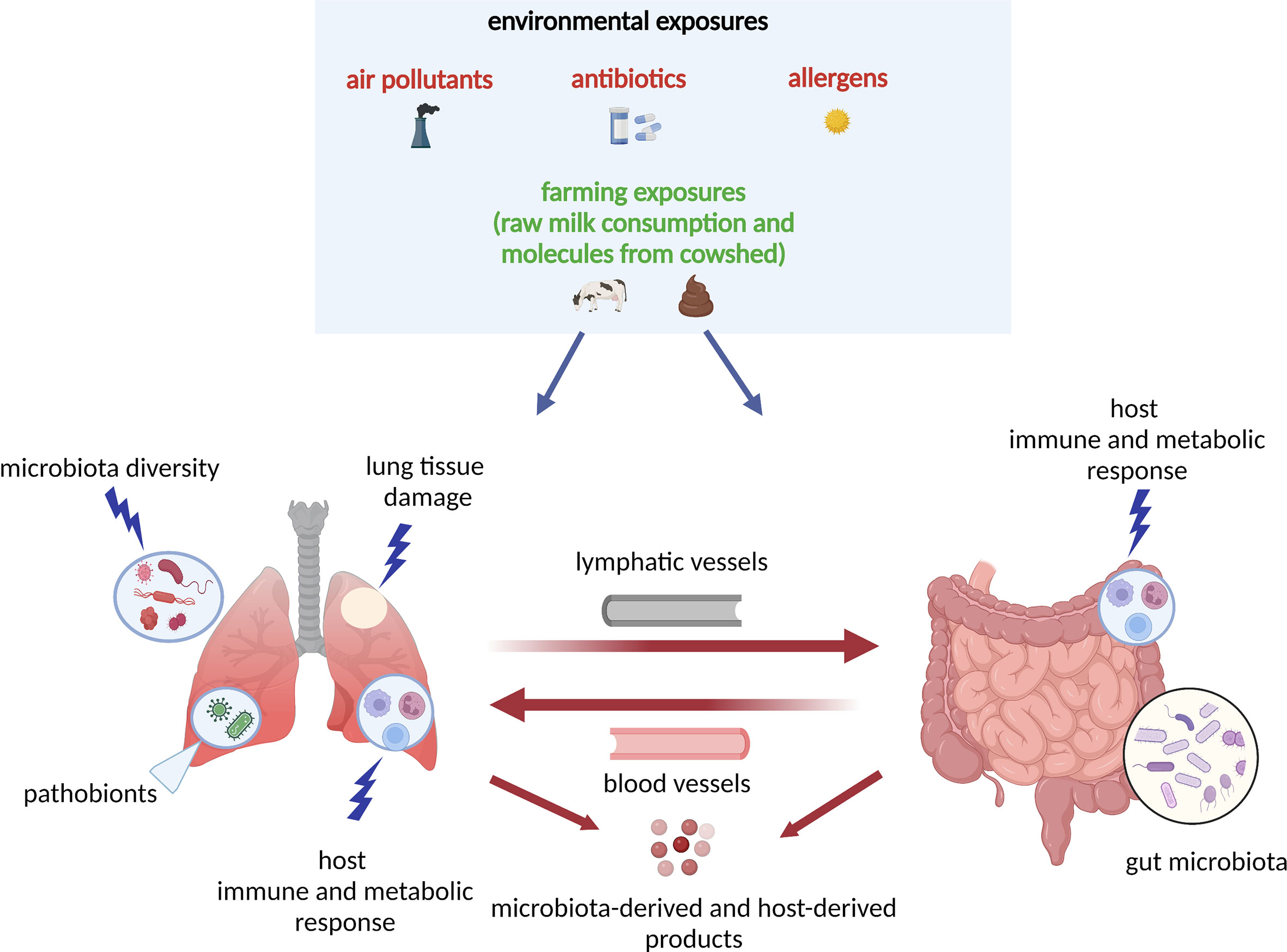
Unraveling Dysbiosis: Understanding the Gut Microbiome Imbalance and Its Health Implications
The human gut microbiome, a complex ecosystem of trillions of microorganisms, plays a crucial role in maintaining overall health. When this delicate balance is disrupted, a condition known as dysbiosis occurs. Dysbiosis, often referred to as gut microbiome imbalance, has been linked to a wide range of health problems, from digestive disorders to autoimmune diseases. Understanding the causes, symptoms, and potential treatments for dysbiosis is essential for promoting gut health and preventing associated health complications.
What is Dysbiosis?
Dysbiosis is characterized by an imbalance in the composition and function of the gut microbiota. This imbalance can involve a decrease in beneficial bacteria, an increase in harmful bacteria, or a reduction in overall microbial diversity. The gut microbiome is responsible for many essential functions, including digesting food, synthesizing vitamins, training the immune system, and protecting against pathogens. When dysbiosis occurs, these functions can be compromised, leading to various health issues. [See also: The Gut-Brain Axis: How Your Gut Influences Your Mind]
The Gut Microbiome: A Complex Ecosystem
The gut microbiome is a dynamic and complex community of bacteria, fungi, viruses, and other microorganisms that reside in the digestive tract. This ecosystem is influenced by various factors, including diet, lifestyle, genetics, and medication use. A healthy gut microbiome is characterized by a diverse and balanced community of microorganisms that work together to support optimal health. Maintaining this balance is critical for preventing dysbiosis and promoting overall well-being.
Causes of Dysbiosis
Several factors can contribute to the development of dysbiosis. Understanding these causes is essential for identifying potential risk factors and implementing preventive measures.
- Antibiotic Use: Antibiotics are designed to kill bacteria, but they can also disrupt the balance of the gut microbiome by killing both harmful and beneficial bacteria. This can create an opportunity for opportunistic pathogens to thrive, leading to dysbiosis.
- Diet: A diet high in processed foods, sugar, and unhealthy fats can promote the growth of harmful bacteria in the gut. Conversely, a diet rich in fiber, fruits, and vegetables can support the growth of beneficial bacteria.
- Chronic Stress: Chronic stress can negatively impact the gut microbiome by altering gut motility, increasing intestinal permeability, and suppressing the immune system. These changes can create an environment that favors the growth of harmful bacteria.
- Infections: Infections, such as gastroenteritis, can disrupt the balance of the gut microbiome and lead to dysbiosis. Certain pathogens can damage the gut lining and alter the composition of the gut microbiota.
- Medications: In addition to antibiotics, other medications, such as nonsteroidal anti-inflammatory drugs (NSAIDs) and proton pump inhibitors (PPIs), can also disrupt the gut microbiome and contribute to dysbiosis.
- Environmental Factors: Exposure to environmental toxins, such as pesticides and pollutants, can also negatively impact the gut microbiome and increase the risk of dysbiosis.
Symptoms of Dysbiosis
The symptoms of dysbiosis can vary depending on the severity of the imbalance and the specific microorganisms involved. Some common symptoms include:
- Digestive Issues: Symptoms such as bloating, gas, constipation, diarrhea, and abdominal pain are common in individuals with dysbiosis. These symptoms can be caused by changes in gut motility, increased intestinal permeability, and inflammation.
- Food Sensitivities: Dysbiosis can impair the gut’s ability to properly digest food, leading to food sensitivities and intolerances. Common food sensitivities associated with dysbiosis include gluten, dairy, and soy.
- Fatigue: The gut microbiome plays a role in energy production and nutrient absorption. When dysbiosis occurs, it can lead to fatigue and decreased energy levels.
- Skin Problems: The gut microbiome is connected to the skin through the gut-skin axis. Dysbiosis can contribute to skin problems such as acne, eczema, and psoriasis.
- Mood Disorders: The gut microbiome is also connected to the brain through the gut-brain axis. Dysbiosis can affect mood and mental health, contributing to anxiety, depression, and other mood disorders. [See also: Probiotics for Mental Health: A Comprehensive Guide]
- Weakened Immune System: A significant portion of the immune system resides in the gut. Dysbiosis can impair immune function and increase susceptibility to infections.
Health Implications of Dysbiosis
Dysbiosis has been linked to a wide range of health conditions. Addressing dysbiosis can potentially improve the outcomes of these conditions. Some of the health implications of dysbiosis include:
- Inflammatory Bowel Disease (IBD): Dysbiosis is a hallmark of IBD, including Crohn’s disease and ulcerative colitis. The altered gut microbiome can contribute to chronic inflammation and damage to the intestinal lining.
- Irritable Bowel Syndrome (IBS): Dysbiosis is also implicated in IBS, a functional gastrointestinal disorder characterized by abdominal pain, bloating, and altered bowel habits. The imbalance in the gut microbiome can affect gut motility and sensitivity.
- Obesity and Metabolic Disorders: Dysbiosis can influence metabolism and contribute to obesity, insulin resistance, and other metabolic disorders. Certain bacteria can promote the storage of fat and increase inflammation.
- Autoimmune Diseases: Dysbiosis has been linked to autoimmune diseases such as rheumatoid arthritis, multiple sclerosis, and type 1 diabetes. The altered gut microbiome can trigger immune responses that attack the body’s own tissues.
- Allergies: Dysbiosis can impair immune tolerance and increase the risk of developing allergies. The imbalance in the gut microbiome can affect the development and function of immune cells.
- Mental Health Disorders: As mentioned earlier, dysbiosis can affect mental health and contribute to anxiety, depression, and other mood disorders. The gut microbiome can influence the production of neurotransmitters and the regulation of the stress response.
Diagnosing Dysbiosis
Diagnosing dysbiosis can be challenging, as there is no single definitive test. However, several methods can be used to assess the composition and function of the gut microbiome. These include:
- Stool Testing: Stool tests can analyze the types and amounts of bacteria, fungi, and other microorganisms present in the gut. These tests can help identify imbalances in the gut microbiome and potential pathogens.
- Breath Testing: Breath tests can measure the levels of certain gases produced by bacteria in the gut. These tests can help diagnose conditions such as small intestinal bacterial overgrowth (SIBO), which is a form of dysbiosis.
- Blood Testing: Blood tests can measure markers of inflammation and immune function, which can provide indirect evidence of dysbiosis.
- Comprehensive Digestive Stool Analysis (CDSA): A CDSA is a more comprehensive stool test that analyzes various aspects of digestion, absorption, and the gut microbiome.
Treatment and Management of Dysbiosis
The treatment and management of dysbiosis typically involve a combination of dietary changes, lifestyle modifications, and targeted therapies. The goal is to restore balance to the gut microbiome and promote overall health. Some common strategies include:
- Dietary Changes: A diet rich in fiber, fruits, vegetables, and fermented foods can support the growth of beneficial bacteria. Limiting processed foods, sugar, and unhealthy fats can help reduce the growth of harmful bacteria.
- Probiotics: Probiotics are live microorganisms that can help restore balance to the gut microbiome. They can be taken as supplements or consumed through fermented foods such as yogurt, kefir, and sauerkraut.
- Prebiotics: Prebiotics are non-digestible fibers that feed beneficial bacteria in the gut. They can be found in foods such as onions, garlic, bananas, and asparagus.
- Antibiotics (Judicious Use): While antibiotics can contribute to dysbiosis, they may be necessary in some cases to treat infections. However, they should be used judiciously and only when necessary.
- Fecal Microbiota Transplantation (FMT): FMT involves transferring stool from a healthy donor to a recipient to restore balance to the gut microbiome. This therapy is typically used for severe cases of Clostridium difficile infection and is being investigated for other conditions associated with dysbiosis.
- Lifestyle Modifications: Managing stress, getting enough sleep, and engaging in regular exercise can also support gut health and help prevent dysbiosis.
Preventing Dysbiosis
Preventing dysbiosis is essential for maintaining gut health and preventing associated health problems. Some strategies for preventing dysbiosis include:
- Eating a Healthy Diet: A diet rich in fiber, fruits, vegetables, and fermented foods can support a healthy gut microbiome.
- Avoiding Unnecessary Antibiotics: Antibiotics should only be used when necessary and under the guidance of a healthcare professional.
- Managing Stress: Practicing stress-reducing techniques such as meditation, yoga, and deep breathing can help protect the gut microbiome.
- Getting Enough Sleep: Adequate sleep is essential for overall health and can also support a healthy gut microbiome.
- Engaging in Regular Exercise: Regular exercise can improve gut motility and promote the growth of beneficial bacteria.
Conclusion
Dysbiosis, or gut microbiome imbalance, is a common condition that can have significant health implications. Understanding the causes, symptoms, and potential treatments for dysbiosis is essential for promoting gut health and preventing associated health complications. By adopting a healthy lifestyle, including a balanced diet, stress management, and judicious use of antibiotics, individuals can support a healthy gut microbiome and reduce their risk of developing dysbiosis. If you suspect you may have dysbiosis, consult with a healthcare professional for proper diagnosis and treatment. Prioritizing gut health is a crucial step towards overall well-being. [See also: The Role of Fermented Foods in Gut Health]

